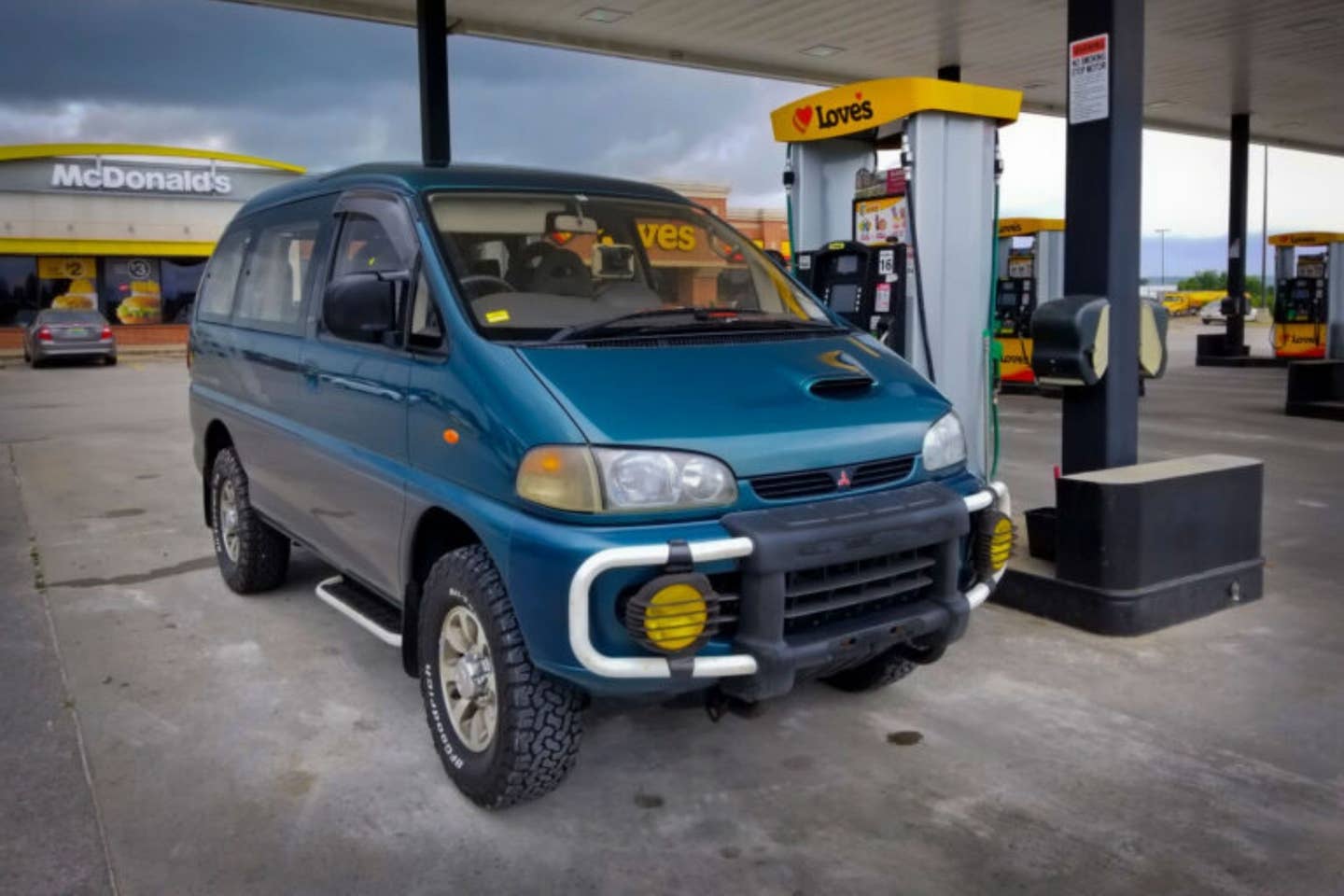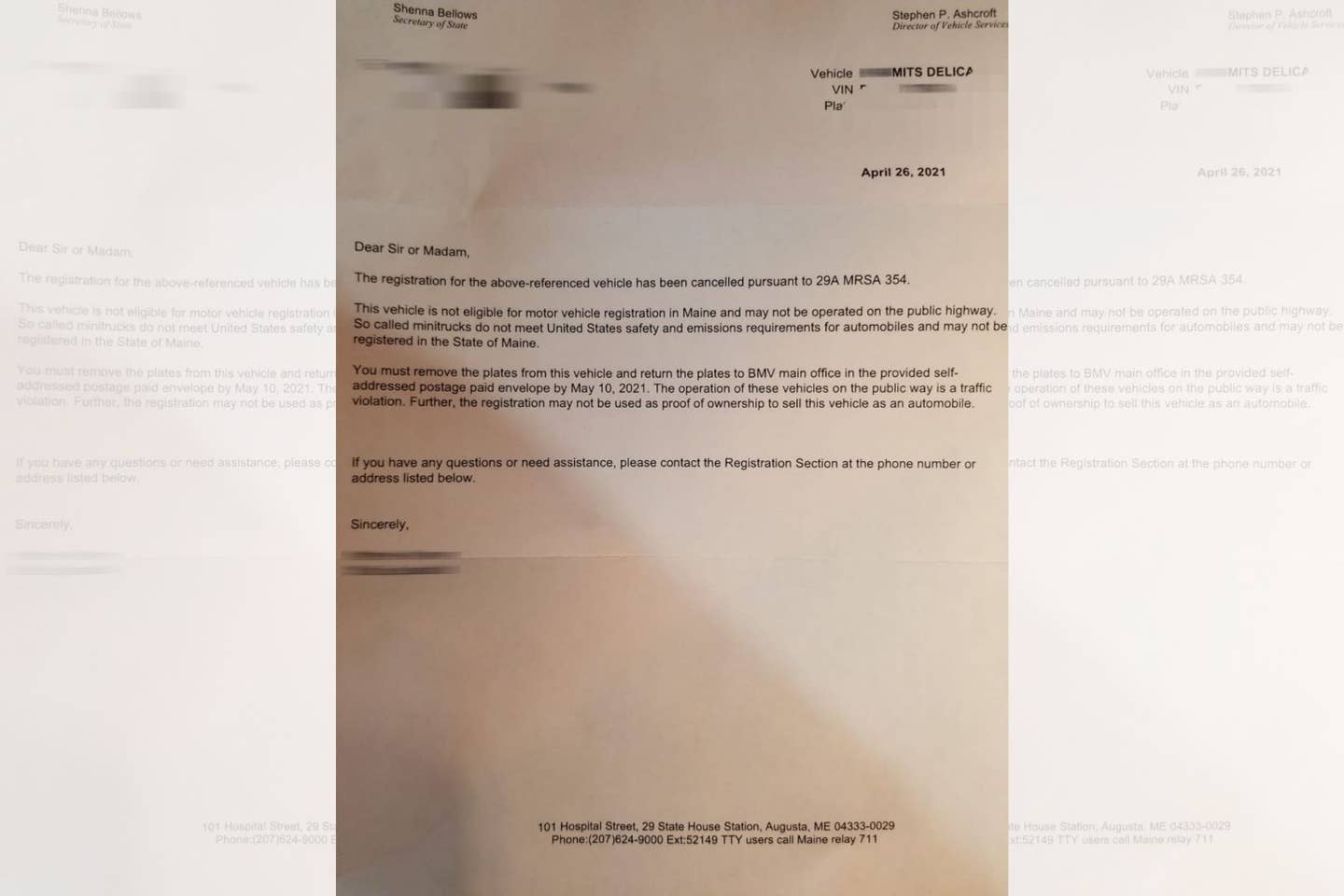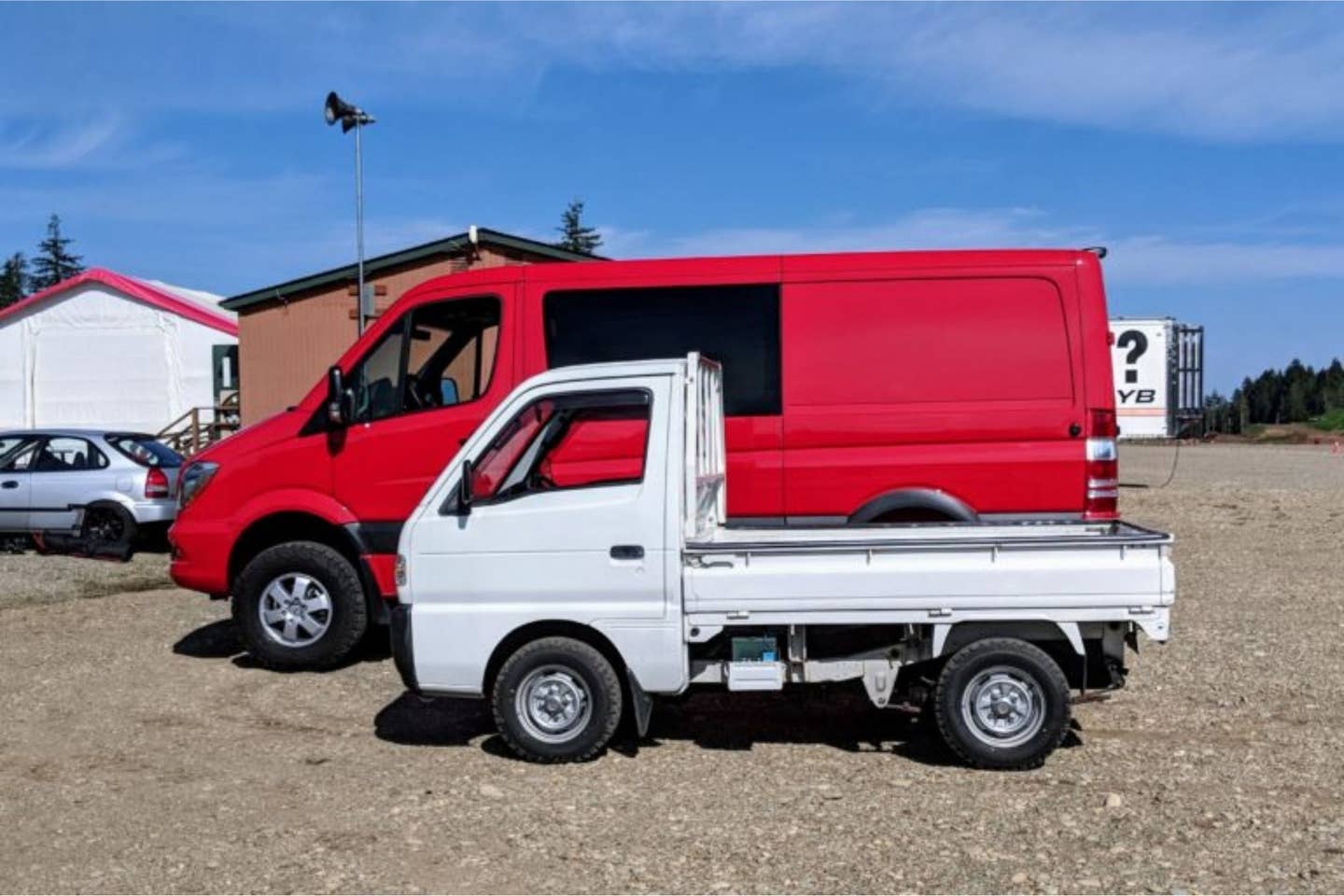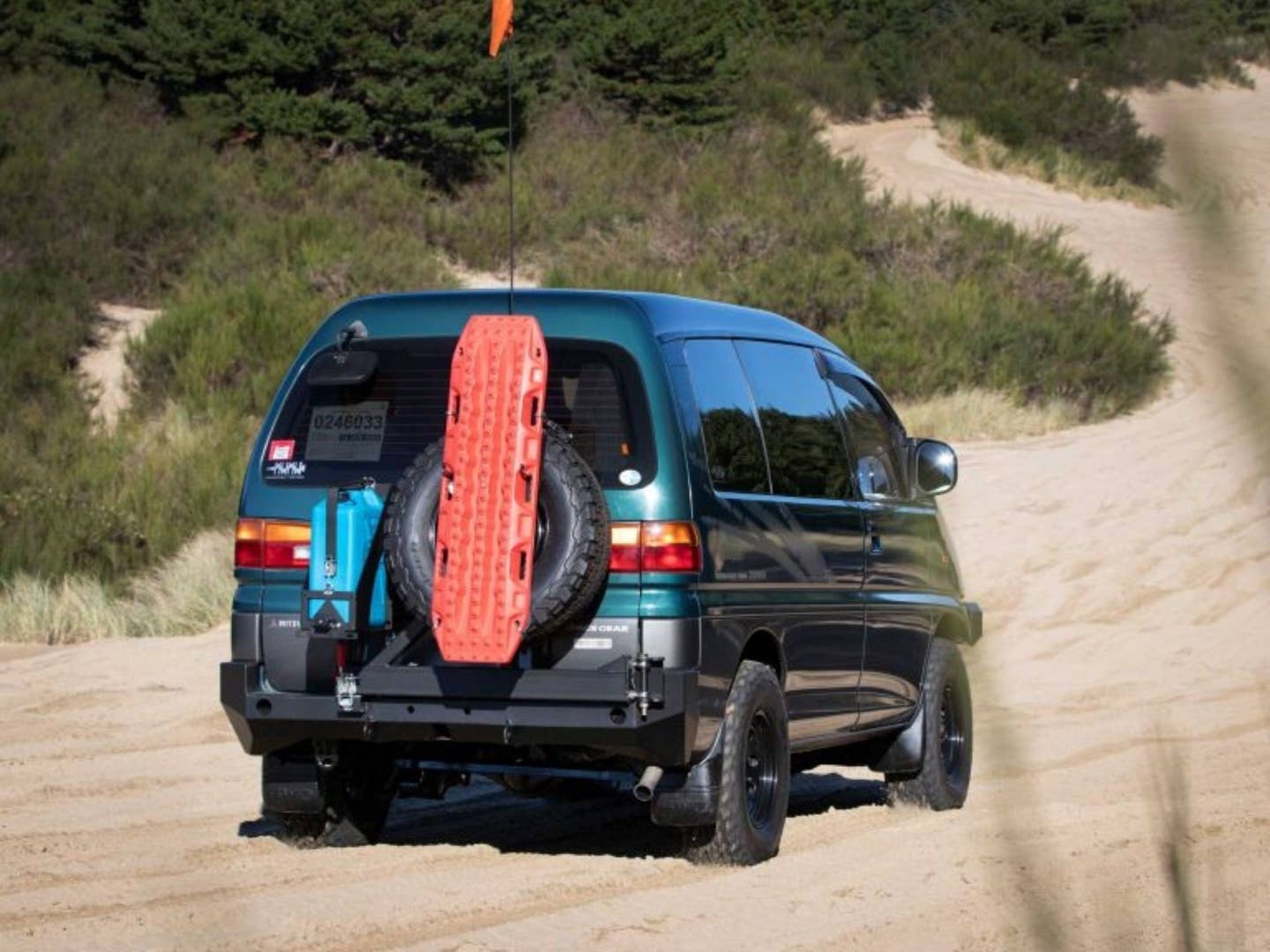Enthusiasts and aficionados of Japanese Domestic Market (JDM) and vanning are fond of Mitsubishi’s unique Delica, a forward-control van with off-road capabilities and a right-hand driver layout. For those acquainted with the van-tastic Delica, it represents more than just a 4×4 competitor or a vehicle for weekend excursions; it serves as a daily driver and is equally comfortable on extended journeys. However, in Maine, the adoration for this minivan abruptly halts at the state border with the Bureau of Motor Vehicles.
Without forewarning, Maine officials have recently proclaimed a figurative “Delicas unwelcome” policy, notifying owners of these imported vans that they must promptly surrender their license plates and refrain from road usage. Allegedly, the state’s motor vehicle bureau has classified the Delica as a compact truck, erroneously grouping it with the Japanese kei trucks meant only for off-road applications; the perplexing part is that Delicas significantly differ from these angular trucks.
Mercedes Lilienthal
Andy Lilienthal from Crankshaft Culture in Oregon, who serves as one of the moderators for the Mitsubishi Delica owners’ club on Facebook, exposed a letter sent to a group member by the Maine BMV, informing them that the van cannot be operated on public roads due to safety and emissions non-compliance. The recipient of the notification was given a mere three weeks to surrender their plates, effectively transforming a road-legal van into a liability.
Consequently, numerous owners found themselves compelled to sell their Delicas, feeling trapped.
Delicas are unconventional short-nosed vehicles of similar size to a Toyota Sienna. Despite still being produced in China, the vans were originally introduced in an earlier incarnation in 1968; the fourth-generation iteration (1994-1996) shared its engine and transmission with the Mitsubishi Pajero SUV. As per the U.S. 25-year rule, vehicles manufactured in 1996 and earlier are eligible for purchase for use on American roads.
Mitsubishi Delica Owners Club USA (used with permission)
According to the official U.S. Congress website, the Imported Vehicle Safety Compliance Act of 1988 modifies the National Traffic and Motor Vehicle Safety Act of 1966 to revoke the authority of the Transportation and Treasury Secretaries to allow the temporary entry of vehicles that fail to adhere to federal safety standards. Essentially, vehicles over 25 years old not originally marketed in the U.S. – like the Mitsubishi Lancer Evo IV and Nissan Skyline GT-R LM Limited, among others – are exempt from safety standards prompted by Ralph Nader’s
Unsafe At Any Speed campaign.
As detailed in Part 1, Group 1, section 7 of the National Highway Traffic Safety Administration (NHTSA) Importation and Certification FAQ’s Directory, “any motor vehicle aged at least 25 years can be legally imported into the U.S. without concern for full compliance with all relevant FMVSS.”
If this is the federal decree, how does Maine independently opt to ban the Delica?
Jacob Perkins
Lilienthal, a journalist as well, opted to delve deeper to uncover the Delica classification conundrum. He sent a message to Emily Cook, an employee at the Maine Secretary of State office, seeking clarification. Cook informed him that in Maine, an off-road vehicle is defined as any vehicle bearing a manufacturer’s sticker for federal and EPA standards.
“Although the EPA and NHTSA permit the importation of these vehicles into the U.S., it is restricted to off-road utilization,” wrote Cook in response to Lilienthal’s query. “Maine considers such vehicles as ATVs, and they are legally permitted for off-road use solely. Refer to 29A section 354.”
The current outcome is that residents of Maine are allowed to bring their Delica for an inspection; however, without the manufacturer’s sticker, registration for plates is not viable. Since the Delica lacks the necessary sticker due to its import status, it falls under the off-road vehicle category, making it unsuitable for road usage.
Kei trucks like this look nothing like Delicas. , Tuan Huynh
“This raised another inquiry that I needed to pose to her: there are possibly hundreds – maybe thousands – of vehicles registered in Maine under the 25-year rule that no longer comply. Can owners of any imported vehicle anticipate receiving this notification? Now we are discussing vehicles like the Nissan Skyline, Rolls Royce, Austin Healy Sprite, or the Toyota Hiace, similar to the Delica.”
Cook responded, stating, “Any wrongly registered vehicle would be issued a comparable letter to those recently dispatched by the Bureau of Motor Vehicles.”
This could have significant implications for car enthusiasts. If this becomes a precedent, it is conceivable that any motor vehicle bureau could cease registrations for pre-1998 models. This leads to the question: what comes next? Could Grandpa’s freshly repainted 1957 Chevy Bel Air be affected, or any imported right-hand-drive automobile? Delica owners seek to understand why a BMW Isetta is registerable while a similarly sized conventional minivan must surrender its registration.
Mercedes Lilienthal
Owners are actively seeking information and avenues to engage with Maine officials regarding the letters distributed by the BMV. They have mobilized the SEMA Action Network, requested documents under Maine’s Freedom of Access Act (FOAA), placed calls, and crafted letters. Currently, the future of the Delica, and potentially other imports, hangs in uncertainty.
“Why was the Delica singled out?” Lilienthal wonders. “That’s a pertinent question we are all attempting to unravel.”
If Maine can enforce such regulations, other states could follow suit. JDM enthusiasts, stay vigilant on this matter, and we will keep you informed as more information surfaces.
Have a lead? Reach out to the author: kristin.shaw@thedrive.com




